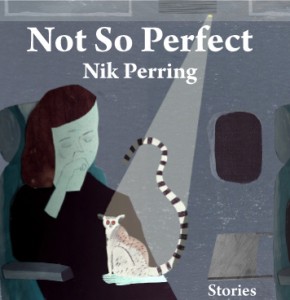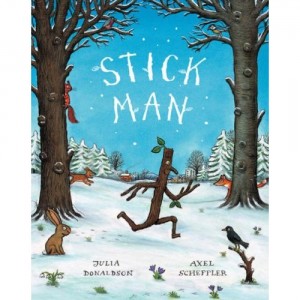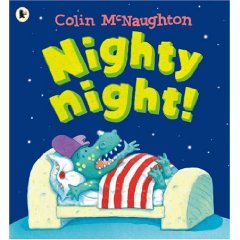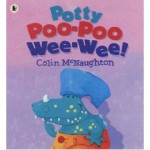Recently I won a draw on Bah! To Cancer’s blog for a signed copy of a book of short stories by Nik Perring, Not So Perfect. By the way, if you haven’t visited Bah! to Cancer before, pop over now and have a look, it’s a great site. No, not now, I’ll never get you  back. Go at the end of the post, when you’ve commented about how wonderful I am. Sorry, Nik Perring is.
back. Go at the end of the post, when you’ve commented about how wonderful I am. Sorry, Nik Perring is.
I’d heard great stuff about this little book, and I was over the moon to win a signed copy for myself. I started reading it quite late at night, intending to read a couple of stories then and digest it slowly, but I was completely hooked and devoured the whole lot in one sitting. I would have gone back and read it again but my husband turned the light off. Grr.
There are 22 short short stories, and they really are short. The book is a small square and each story is only a couple of pages, but my goodness! Nik Perring says more in those couple of pages than a lot of people get to in three sides of A4. There is a range of stories too, some are more whimsical but some left me feeling like I’d been punched in the stomach. I think I actually caught myself holding my breath after Shark Boy. This was my favourite story, but the others were all wonderful, and like the best short stories, you can go back and re-read each one to find more and more layers and meanings. The stories are kind of like one of those rich sweets you get from a posh chocolate shop, y’know? They’re only tiny, you gobble a couple down, and just enjoy the experience, then you learn to chew them properly and discover all the flavours. Sorry about all the food references, it’s past my elevenses time.
So if that hasn’t whetted your appetite yet (sorry!), I was lucky enough to persuade Nik to give me a quick sort-of-interview. This is my first crack at this, so be kind to me…
How did you get published? Was it a long tortuous process involving pulling out of hair and staring into empty gin bottles in front of a dying fire?
This is going to sound very arrogant, so I apologise in advance, but my path to publication was really straight forward. I found a publisher I loved and wanted to work with (Roast Books), and I submitted to them. They liked what they read, asked for more, I sent those in, which they also liked, and so they said yes. I would say though that I think the reason it was all so straight forward was because I’d spent an awful lot of time doing the hard work.
As for gin, well, I’m saying nothing!
If you had to pick one story from Not So Perfect – I mean, if your life depended on it – which would it be?
That’s always a really, really difficult question to answer, probably impossible, because I genuinely love, and am proud of, them all. I really enjoyed writing Number 14 because that was about the first one I’d attempted after deciding that writing short stories was what I wanted to do, and I loved writing Seconds Are Ticking By because it came so quickly and fully formed. I’ll always be fond of Shark Boy and In My Head I’m Venus because they’re really good fun to read out, like Kiss and The Mechanical Woman, and – and…
What was your process in making an anthology? Did you write a million stories and then choose 22?
The twenty-two that made it into Not So Perfect were my best and the ones that fitted together the best. There were a few that got left out because it was clear that they were different and didn’t quite fit but, to be honest, it all came together very naturally (and I’m a stickler for only putting work out there that I really love which I think helped the process).

What’s the best thing about being a published author? Or the worst?
The best thing is that people are reading my work and, apparently, enjoying it. That’s really, really special. It’s a nice feeling too to know that I’m not all that bad at it!
Worst? I don’t know. There are lots of bits about it that aren’t perfect. Being a writer’s a lonely occupation. I’ve seen people’s attitudes towards me change since this book’s come out, often in a not so perfect way. There’s a pretty constant sense of worry and anxiety and pressure.
But mostly, and I genuinely mean this (despite sounding like an utter grump) I love the job.
If you were giving advice to a newbie, what would be the one essential ingredient to a perfect (or not so perfect) short story?
Truth, I think. And by that I mean being true to yourself and being true to the story. So, not trying to write like someone else and not trying to write something you think a certain sort of person would like. I think any writer will write best when they’re writing something they’re enjoying (it’s a lot less pressure then too!). So yes, truth and feel free to write whatever you want to write.
The other advice would be: Just Do It! Be brave!
(You can see a list of my short story writing tips here: http://thestorycorrective.com/short-story-tips/)
Thanks so much for having me on here! It’s been a pleasure!
Thanks Nik!
Nik Perring is a writer, and occasional teacher of writing, from the north west. His short stories have been published widely in places including SmokeLong Quarterly, 3 :AM and Word Riot. They’ve also been read at events and on radio, printed on fliers and used as part of a high school distance learning course in the US.
Nik’s debut collection of short stories, NOT SO PERFECT is published by Roast Books and is out now. Nik blogs here (http://nikperring.blogspot.com) and his website’s here (www.nperring.com). He also offers short story help here (http://thestorycorrective.com/).



